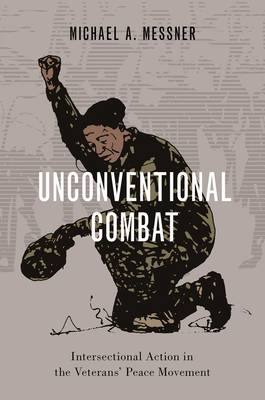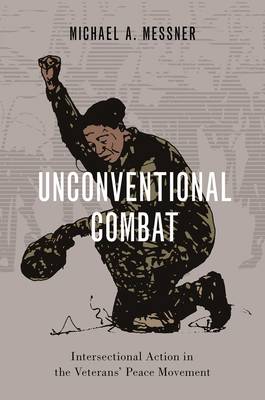
- Afhalen na 1 uur in een winkel met voorraad
- Gratis thuislevering in België vanaf € 30
- Ruim aanbod met 7 miljoen producten
- Afhalen na 1 uur in een winkel met voorraad
- Gratis thuislevering in België vanaf € 30
- Ruim aanbod met 7 miljoen producten
Zoeken
€ 103,45
+ 206 punten
Uitvoering
Omschrijving
In recent decades, there has been a generational shift of the US veterans' peace movement, from one grounded mostly in the experiences of older white men of the Vietnam War era, to one informed by a young, diverse cohort of post-9/11 veterans. In Unconventional Combat, Michael A. Messner
traces this transformation through the life-history interviews of six veterans of color to show how their experiences of sexual and gender harassment, sexual assault, racist and homophobic abuse during their military service has shaped their political views and action. Drawing upon participant
observation with the Veterans For Peace and About Face organizations and interviews with older male veterans as his backdrop, Messner shows how veterans' military experiences form their collective situated knowledge of intersecting oppressions. This knowledge, Messner argues, further shapes their
intersectional praxis, which promises to transform the veterans' peace movement and potentially link their anti-militarist work with other movement groups working for change. As intersectionality has increasingly become central to the conversation on social movements, Unconventional Combat is not
only a story about the US veterans' peace movement, but it also offers broad relevance to the larger world of social justice activism.
traces this transformation through the life-history interviews of six veterans of color to show how their experiences of sexual and gender harassment, sexual assault, racist and homophobic abuse during their military service has shaped their political views and action. Drawing upon participant
observation with the Veterans For Peace and About Face organizations and interviews with older male veterans as his backdrop, Messner shows how veterans' military experiences form their collective situated knowledge of intersecting oppressions. This knowledge, Messner argues, further shapes their
intersectional praxis, which promises to transform the veterans' peace movement and potentially link their anti-militarist work with other movement groups working for change. As intersectionality has increasingly become central to the conversation on social movements, Unconventional Combat is not
only a story about the US veterans' peace movement, but it also offers broad relevance to the larger world of social justice activism.
Specificaties
Betrokkenen
- Auteur(s):
- Uitgeverij:
Inhoud
- Aantal bladzijden:
- 192
- Taal:
- Engels
- Reeks:
Eigenschappen
- Productcode (EAN):
- 9780197573631
- Verschijningsdatum:
- 11/06/2021
- Uitvoering:
- Hardcover
- Formaat:
- Genaaid
- Afmetingen:
- 243 mm x 160 mm
- Gewicht:
- 408 g

Alleen bij Standaard Boekhandel
+ 206 punten op je klantenkaart van Standaard Boekhandel
Beoordelingen
We publiceren alleen reviews die voldoen aan de voorwaarden voor reviews. Bekijk onze voorwaarden voor reviews.











